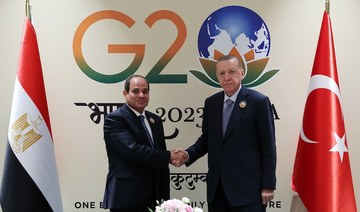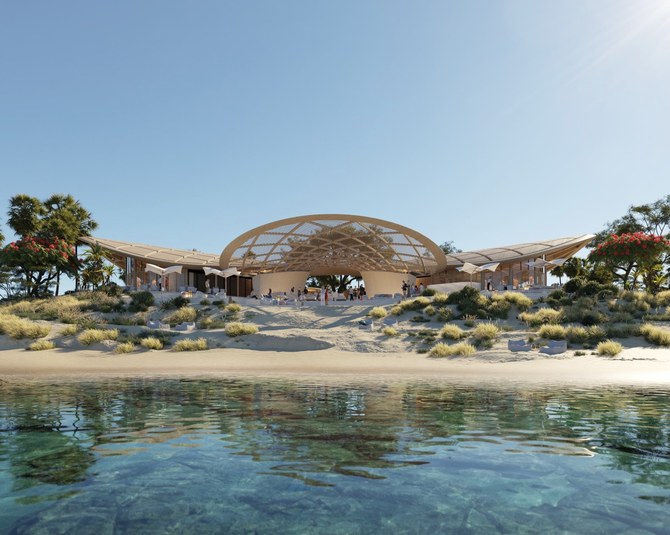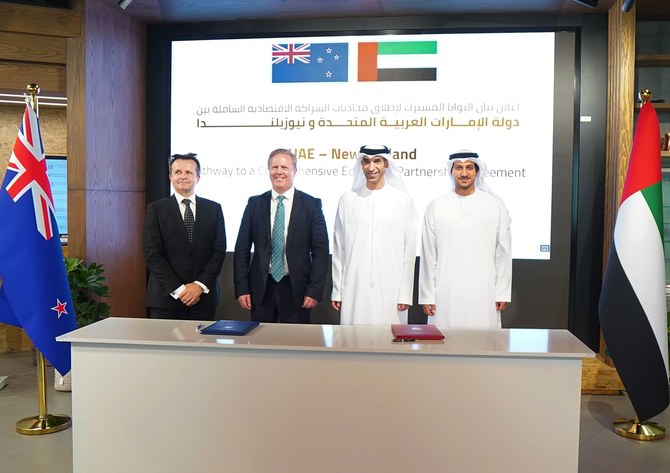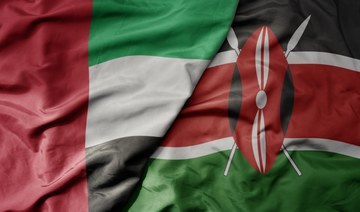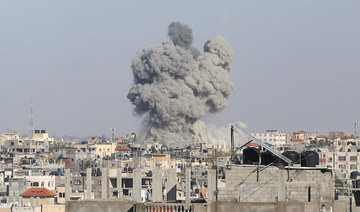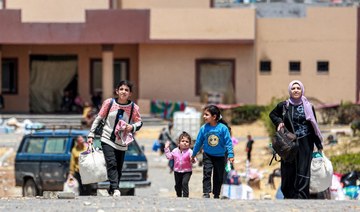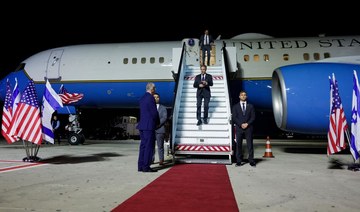ANKARA: The leaders of Turkiye and Egypt on Sunday met formally for the first time in more than a decade, on the sidelines of the G20 summit.
The meeting in the Indian capital New Delhi between Turkish President Recep Tayyip Erdogan and his Egyptian counterpart Abdel Fattah El-Sisi marked an historic milestone in a recent thawing of relations.
In July, the two countries appointed respective ambassadors to Cairo and Ankara, effectively ending years of tensions that had strained diplomatic ties.
During Sunday’s talks, Erdogan and El-Sisi highlighted the importance of rejuvenating economic cooperation, including on energy, while promoting cultural exchanges.
Erdogan pointed out Turkiye’s keen interest in rekindling links in vital sectors such as liquefied natural gas and nuclear energy.
The reconciliation process has been a gradual one, with both countries taking measured steps to pave the way for diplomatic re-engagement.
Over recent years, Turkiye has shown its commitment to improving relations in several ways, including by ceasing the broadcast of Egyptian opposition TV channels, and detaining Egyptian dissidents using social media to support anti-government protests in Egypt.
Also, the Muslim Brotherhood-affiliated Egyptian satellite TV channel, Mekameleen TV, last year relocated its operations from Turkiye.
Dalia Ziada, director of the Cairo-based MEEM Center for Middle East and Eastern Mediterranean Studies and a member of Diplomeds — The Council for Mediterranean Diplomacy, told Arab News that the Egyptians were pre-concerned by cooperation on regional problems.
“That was clearly expressed in the official statement by the Egyptian presidency which emphasized the importance of enhancing regional cooperation as a solid strategic approach to maintaining security and stability in the Eastern Mediterranean,” she said.
However, she noted that the two delegations had yet to agree on holding a presidential summit in one of their capital cities.
“That is crucial to engage the public citizens in the reconciliation process in order to ensure its sustainability in the long term,” Ziada added.
Dr. Pinar Akpinar, assistant professor with the Gulf Studies Program at Qatar University’s College of Arts and Sciences, told Arab News that the Turkish-Egyptian rapprochement could lead to sustainable results in the short term by focusing on economic collaboration, regional cooperation, energy partnerships, security ties, and civil society engagement.
“Engaging the public and shifting away from red lines such as political ideologies toward shared interests are also critical components for success,” she said.
Akpinar pointed out that energy projects could be a focal point for collaboration between the two countries, particularly in renewable energy initiatives such as solar and wind farms.
“There is potential for private-sector investments in energy infrastructure and the creation of a geo-economic triangle involving Egypt, Israel, and Turkiye to attract European investments in the energy sector,” she added.
Akpinar said the rapprochement had the potential to bolster regional dynamics by enhancing energy security, stabilizing markets, and promoting economic interdependence.
“Collaborative efforts in renewable energy projects and infrastructure development can provide both countries with diversified energy sources and greater resilience against supply disruptions, positively impacting neighboring nations as well.
“Furthermore, their joint involvement in regional energy initiatives can position Egypt and Turkiye as influential actors in regional negotiations and conflicts, contributing to diplomatic stability and conflict mitigation while addressing shared energy needs in the region.
“They could also leverage their relations with Gulf countries in this regard,” she added.
Also a member of Diplomeds, Akpinar recently co-authored a policy paper with Ziada titled, “Fostering Egypt Turkiye Rapprochement through Sustainable Cooperation: A Strategic Policy Approach.”
In it they noted that improved Egyptian Turkish relations could enable the countries, “to build on their successful economic cooperation, revive military collaboration, and focus on future projects that support bilateral and regional well-being.”
Ziada said cooperation in the trade of LNG that had been going on since December 2021, could be magnified by including other regional players such as Israel.
“Especially in light of the ongoing successful cooperation between Egypt and Israel, since 2015, on extracting and liquifying the gas in their respective basins in the southern Mediterranean, this can deepen their cooperation,” she added.
Israeli-based news television channel i24NEWS recently reported that Israeli Prime Minister Benjamin Netanyahu had instructed an inter-ministerial team to examine alternatives to Israel’s current gas exports, including a way to direct it to Turkiye and consequently to southern European nations to cut reliance on the Russian pipeline.
The proposed pipeline, “aims to link the key Turkish-European pipeline with the abundant gas reserves in Israel and neighboring areas such as Egypt and the UAE”, i24NEWS reported.
Ziada said Egypt could adopt a mechanism that allowed it to cooperate with Turkiye on the gas issue, without necessarily cutting ties with Greece and Cyprus or harming its previous agreements with them. “It is not an either/or equation. Egypt can do both,” she added.
Ziada warned about the need for stabilizing Libya to ensure stability in the Eastern Mediterranean.
Libya, she said, was “a bleeding wound in this economically critical region. Egypt and Turkiye can perfectly cooperate to ensure political stability in Libya due to their strong connections with and influence on the conflicting parties inside the country.”
The rapprochement process has also been supported by recent civil initiatives such as Diplomeds, a non-profit policy group. Prominent experts from the Mediterranean region have been working since 2022 to advance Egypt Turkiye rapprochement and improve ties between Mediterranean countries by advancing peace and promoting regional cooperation.
In a joint statement, Dr. Nimrod Goren, co-founder of Diplomeds and senior fellow at the Middle East Institute, and Camille Limon, Diplomeds coordinator, told Arab News: “We are working on this issue out of a conviction that progress in ties is feasible and beneficial for the two countries and their peoples, but also for their neighborhood at large.
“Last year, as prospects for Egypt-Turkiye rapprochement emerged, Diplomeds assembled a multi-national policy support group, consisting of several Egyptian, Turkish, and other Mediterranean retired ambassadors, scholars, and policy analysts.
“The group worked collaboratively to assess changes in ties and rapprochement efforts, to draw recommendations for improving bilateral relations, and to identify new regional opportunities that may emerge once Egypt and Turkiye are back on good terms.”
Hesham Youssef, senior fellow at the US Institute of Peace, Diplomeds’ co-founder and part of its policy support group on the topic, noted that Egyptian-Turkish relations were important for stability in the region.
He said: “Stability in the region can be advanced if cooperation between Egypt, Turkiye, Saudi Arabia, and Iran can be achieved, and this stability can be dramatically enhanced to achieve prosperity with the end of the Israeli Palestinian conflict and strong partnership with other countries in the East Mediterranean and the Middle East.”




